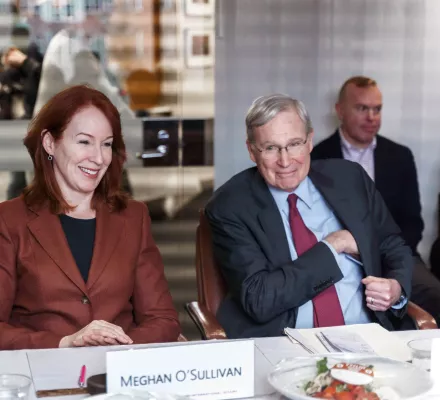
Charting a Bold Path Forward
Belfer Center Director Meghan O'Sullivan discusses our strategic priorities for the coming decades.
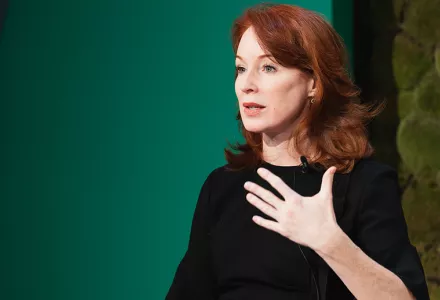
One of the Belfer Center’s great strengths has been an orientation toward the future, rooted in an appreciation for the fundamental lessons of the past. We bring this lens when we identify the challenges we can help understand, the opportunities we can illuminate, the risks we can help manage, and the policy ideas we can propose. In determining our focus, we seek to identify which questions lie over the horizon that are difficult for policymakers to address, but are amenable to focused, policy-relevant scholarship. This orientation applies to the broad scope of our work, be it in defense, emerging technologies, conflict resolution, nuclear risks, energy and the environment, or regions such as the Middle East, Africa, and Europe.
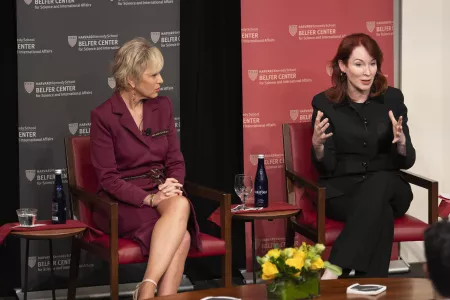
Today, we see a global landscape thirsty for the insights and ideas that the Belfer Center has to offer. The world stands amid multiple transitions: from the liberal international order that marked the last 80 years to a new global order still being formed; from a world of rapid but generally manageable technological change to one where change is faster and more consequential; from fossil fuels to a global economy powered by cleaner sources of energy. The points of departure for each of these transitions—and others—are reasonably well known. But the end points are still uncertain, as are the nature and scale of the disruptions that will arise along the path of each transition.
Our expertise and programs will continue to help the world better understand and navigate these and other transitions, just as Belfer Center scholars and practitioners have done for five decades. Today, we have a particular opportunity to apply our expertise through a substantial—although not exclusive—focus on what we are calling the Belfer Overlap. It is in this space that three great drivers of international affairs come together: shaping the emerging world order in a more peaceful direction; maximizing the benefits of emerging technologies while mitigating their risks; and decarbonizing the global economy, with all the social, political, and geopolitical implications that entails.
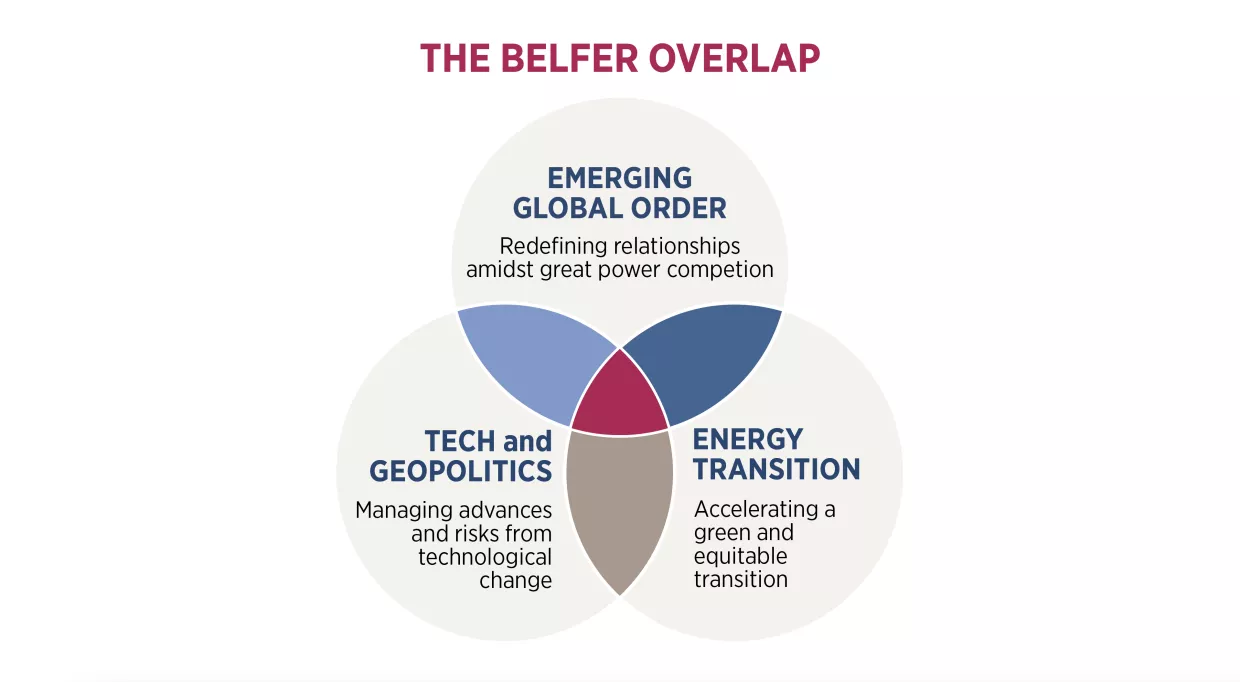
In many ways, the Belfer Overlap represents the past, the present, and the future of the Center. Much of our legacy work falls squarely into the space where the priorities intersect. And this same overlap depicts where many of our forward-leaning efforts to advance policy ideas, train new leaders, and expand and deepen public understanding will concentrate.
As we embark on this new chapter, we will build on existing work and launch new projects, animated by key questions and challenges of this rapidly changing era. Through new initiatives related to the changing global order, we will endeavor to help ensure that the peace between great powers that has characterized the last 80 years continues in this period of rising tensions. We will seek to help policymakers and others better conceptualize and understand the emerging global order, including the rise of “Middle Powers” that seek greater autonomy and wield greater influence. We will illuminate how both conflict and competition—within and between countries—will be affected by transnational forces such as climate change and technological advance, alongside more traditional drivers like historical grievances. And we will explore how the drive to a cleaner, more sustainable energy system might stabilize or destabilize a lurching geopolitical arena.
Through a new project on technology and geopolitics, we will strive to better understand and explain the interaction between international competition and the development of artificial intelligence, quantum computing, biotechnology, and other fields with vast promise and daunting risks. We aspire to better understand how the need to expand nuclear power for climate mitigation will mesh with efforts to reduce proliferation risks so that policy makers can best navigate these challenges.
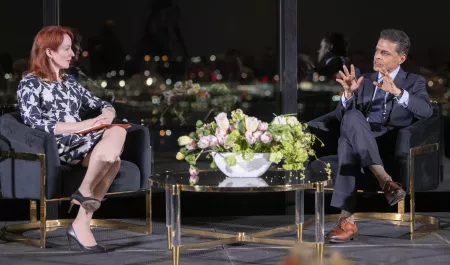
The agenda is both daunting and invigorating. Yet I believe no organization is better placed than the Belfer Center to advance knowledge, provide training, and deliver policy insights on the issues that will shape the future of humanity for the coming decades. No other organization possesses the constellation of factors that have both grown from and perpetuated the Center’s work over the last five decades. We combine great expertise and an interdisciplinary, policy-relevant orientation with a setting in one of the world’s great universities. We are nurtured by students who bring fresh thinking and aspirations, by generations of faculty, staff, amd alumni who continue to call Belfer home. We benefit from the counsel and support of a large network of leaders and philanthropists in every field and discipline. And we remain guided by a powerful lodestar: a focus on the most consequential topics and the toughest problems at the intersection of science and international affairs.
– Meghan L. O'Sullivan, on the Belfer Center's new direction, Summer 2024.
